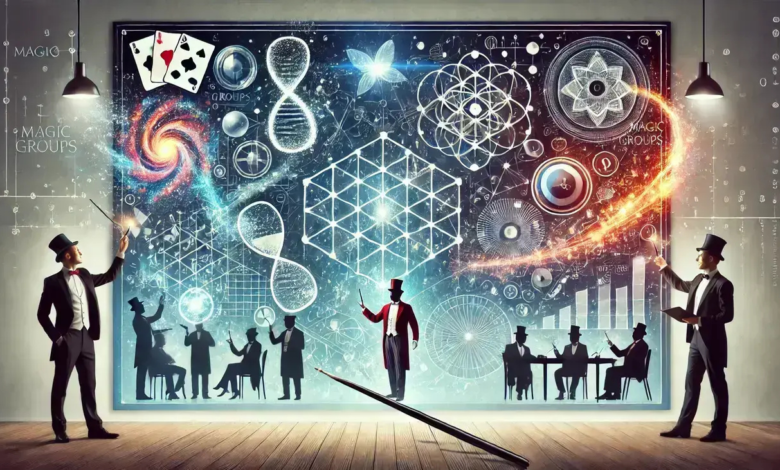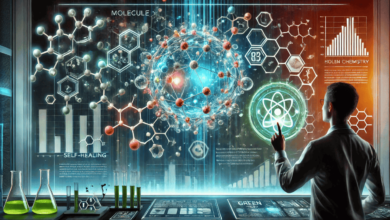Magic Groups: The Fascinating World of Magic Societies, Organizations, and Mathematics

Magic has captivated the human imagination for centuries, sparking curiosity, wonder, and awe. Whether you’re a fan of magicians performing astounding tricks, a student of mathematical concepts, or simply intrigued by the mystical side of life, the term “magic groups” has a range of meanings that can bring you closer to different worlds. In this article, we’ll explore the different types of magic groups—ranging from prestigious societies to mathematical structures—and why they remain a vital part of our cultural and intellectual history.
Magic Groups in the World of Performing Arts
When you think of “magic groups,” the first thing that might come to mind is a group of magicians performing incredible tricks for an audience. Around the world, there are several renowned organizations that focus on advancing the art of magic. These groups bring together magicians from all walks of life, allowing them to share ideas, improve their craft, and even participate in public performances.
The most prominent of these societies is The Magic Circle, based in London. Founded in 1905, this exclusive organization represents some of the most skilled magicians in the world. Members of The Magic Circle are highly respected in the magic community, and membership is often seen as a mark of distinction. To become a member, an aspiring magician must pass a rigorous performance exam or submit a written thesis on a particular branch of magic.
Another well-known organization is the International Brotherhood of Magicians (IBM), founded in 1922. With a global membership of over 15,000, the IBM is one of the largest magic societies worldwide. It hosts events, provides educational resources, and fosters connections among magicians through conventions and competitions.
The Society of American Magicians (SAM), the oldest fraternal magic organization in the world, was founded in 1902. With over 30,000 members globally, SAM is dedicated to preserving and promoting magic as a performing art. Through its various chapters, SAM offers magicians a platform to grow and connect with fellow performers.
These magic groups serve as more than just places of learning—they are communities that celebrate and preserve the art of illusion. If you’re fascinated by magic and want to take your skills to the next level, joining one of these prestigious groups could be the key to unlocking new opportunities.
The Role of Magic Groups in Mathematics
The phrase “magic groups” isn’t just reserved for performance art—it also has a place in the world of mathematics. Group theory, a branch of abstract algebra, studies mathematical structures known as “groups,” and within this area, the concept of magic groups plays an intriguing role.
In mathematics, magic groups refer to specific types of mathematical groups that exhibit unique properties, often related to combinatorics and geometry. For instance, n-Magic Groups are groups that can form a magic square—an arrangement of numbers in a square grid such that the sums of numbers in each row, column, and diagonal are equal. These structures are often studied in advanced mathematics, and their properties can offer insights into a wide range of mathematical disciplines.
Another fascinating concept related to magic groups in mathematics is Group Vertex Magic Graphs. This involves labeling the vertices of a graph with elements from an abelian group, ensuring that the sum of labels on edges incident to any vertex is constant. Research in this area can lead to new findings in graph theory and combinatorics, both of which have important applications in fields like computer science and cryptography.
While these mathematical interpretations of magic groups may seem far removed from the world of magicians and illusionists, they share a common theme: the exploration of systems that appear simple but are, in reality, full of complex and fascinating properties. Whether you’re studying magic as an art form or as a mathematical principle, magic groups invite you to dive deeper into the intricacies of the subject.
Magic Groups in Popular Culture
In popular culture, “magic groups” also appear as fictional organizations that harness magical powers. These groups are often depicted in books, films, and television series, and they are central to many beloved stories. Whether it’s a group of wizards in a fantasy novel or a band of sorcerers in a magical world, magic groups are often the driving force behind the plot.
One notable example is the Hogwarts School of Witchcraft and Wizardry from the Harry Potter series. While not a “magic group” in the traditional sense, the Hogwarts houses—Gryffindor, Slytherin, Ravenclaw, and Hufflepuff—function as smaller magical communities within the larger school. Each house has its own unique culture, values, and magical traditions, and together they form a cohesive magical group that fosters both individual growth and collective strength.
In other stories, groups of heroes with magical abilities often band together to defeat powerful adversaries or protect the world from dark forces. These fictional magic groups, whether large or small, are key to the success of many narrative arcs, underscoring the idea that teamwork, collaboration, and shared purpose can enhance magical abilities.
The Importance of Magic Groups
Whether in the performing arts, mathematics, or fiction, magic groups hold a special place in human culture. They provide a sense of community and purpose, fostering collaboration and growth. From magicians honing their craft in prestigious societies to mathematicians exploring the properties of magical structures, these groups continue to inspire new generations of thinkers and performers.
In popular culture, magic groups offer a sense of wonder and adventure, capturing the imagination of millions. Whether through fictional wizards or historical magic societies, the concept of a magic group connects us to something larger than ourselves—something mystical, intriguing, and full of possibilities.
Frequently Asked Questions (FAQ)
What are some of the most famous magic groups in the world?
Some of the most famous magic groups include The Magic Circle, the International Brotherhood of Magicians (IBM), and the Society of American Magicians (SAM). These organizations bring together magicians from around the world to share ideas, perform, and learn from each other.
Are magic groups only for professional magicians?
No, magic groups welcome magicians of all skill levels, from amateurs to professionals. Many organizations offer resources, training, and opportunities for personal growth, making them a great place for anyone interested in learning and improving their magical skills.
What is a magic group in mathematics?
In mathematics, magic groups refer to specific types of groups that can form magic squares or graphs. These are mathematical structures that have unique properties, such as ensuring the sums of numbers in rows, columns, and diagonals are constant.
Can I join a magic group if I’m not a magician?
While some magic groups may require a certain level of skill or experience, many welcome people who are passionate about magic and are interested in learning. Some organizations offer memberships that provide access to resources and events, even for beginners.
Conclusion
In conclusion, the concept of “magic groups” transcends boundaries. It appears in various forms across different domains, from exclusive magic societies to mathematical theories to the fantastical realms of fiction. Each of these interpretations adds a layer of richness to the idea of magic, offering something for everyone to enjoy and explore. So, whether you’re a budding magician, a curious mathematician, or simply a lover of magic, there’s a magic group out there waiting for you.



